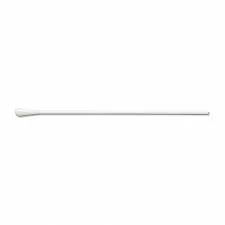Dec . 25, 2024 03:06 Back to list
china stool occult blood test
Understanding the Stool Occult Blood Test in China
The Stool Occult Blood Test (FOBT) is a crucial diagnostic tool in the early detection of colorectal cancer and other gastrointestinal disorders. In recent years, the significance of this test has been increasingly recognized in China, where colorectal cancer rates are on the rise. This article will explore the purpose, process, and implications of the FOBT in the Chinese healthcare context.
What is the Stool Occult Blood Test?
The FOBT is a non-invasive test that detects hidden (occult) blood in the stool, which can be a sign of a variety of conditions. These may include hemorrhoids, diverticulosis, intestinal ulcers, and colorectal cancer. The presence of blood in the stool can be subtle and often goes unnoticed, making the FOBT an essential screening tool, especially for individuals aged 50 and older, or those with a family history of colorectal cancer.
The Importance of Early Detection
Colorectal cancer is one of the leading causes of cancer-related deaths in China, largely due to late diagnoses. The FOBT plays a critical role in early detection, allowing for timely intervention. The earlier the cancer is identified, the higher the chances of successful treatment. This test is particularly important in rural areas of China, where access to advanced healthcare facilities may be limited. By providing a simple and accessible screening option, FOBT can help bridge the healthcare gap and encourage more individuals to seek medical attention early.
The Testing Process
china stool occult blood test

The FOBT is a straightforward procedure. Patients are usually given a kit that contains collection cards and detailed instructions on how to collect stool samples. Typically, the test requires three samples taken over consecutive days to increase the likelihood of detecting occult blood. Once collected, the samples are sent to a laboratory for analysis. The test results typically indicate whether blood has been detected, and if so, further investigations such as colonoscopy may be recommended for a definitive diagnosis.
Cultural Attitudes and Challenges
Despite its importance, cultural attitudes towards bowel health and medical testing can pose challenges in the acceptance of the FOBT in China. Many individuals may feel embarrassed to discuss bowel-related issues or may not understand the significance of the test. Education campaigns are essential to raise awareness about the importance of colorectal health and the role of FOBT in cancer screening. Healthcare providers need to engage patients in open discussions about these tests to mitigate stigma and encourage proactive health management.
The Future of FOBT in China
As the healthcare system in China continues to evolve, there is a growing emphasis on preventive care. The FOBT is becoming a standard part of routine health screenings, particularly for high-risk populations. Advances in technology, including the development of more sensitive and specific tests, may enhance the effectiveness of FOBT in the future. Additionally, integrating FOBT into public health initiatives can further improve screening rates across diverse populations.
Conclusion
The Stool Occult Blood Test is a vital screening tool in the fight against colorectal cancer in China. By promoting awareness, improving access, and fostering open conversations about bowel health, the FOBT can play a significant role in early detection, ultimately saving lives. As the understanding and acceptance of this test continue to grow, it is hoped that colorectal cancer can be managed more effectively, leading to better health outcomes for the population.
-
Dengue NS1 Rapid Diagnostic Test Kit
NewsMar.07,2025
-
Dengue NS1 Rapid Diagnostic Test Kit
NewsMar.07,2025
-
Dengue NS1 Rapid Diagnostic Test Kit
NewsMar.07,2025
-
Transferrin Rapid Test Cassette Tumor Marker TF Card
NewsMar.07,2025
-
Malaria Pf Pan Rapid Diagnostic Test Kit
NewsMar.07,2025
-
malaria pf / pan ag rapid test
NewsMar.07,2025

